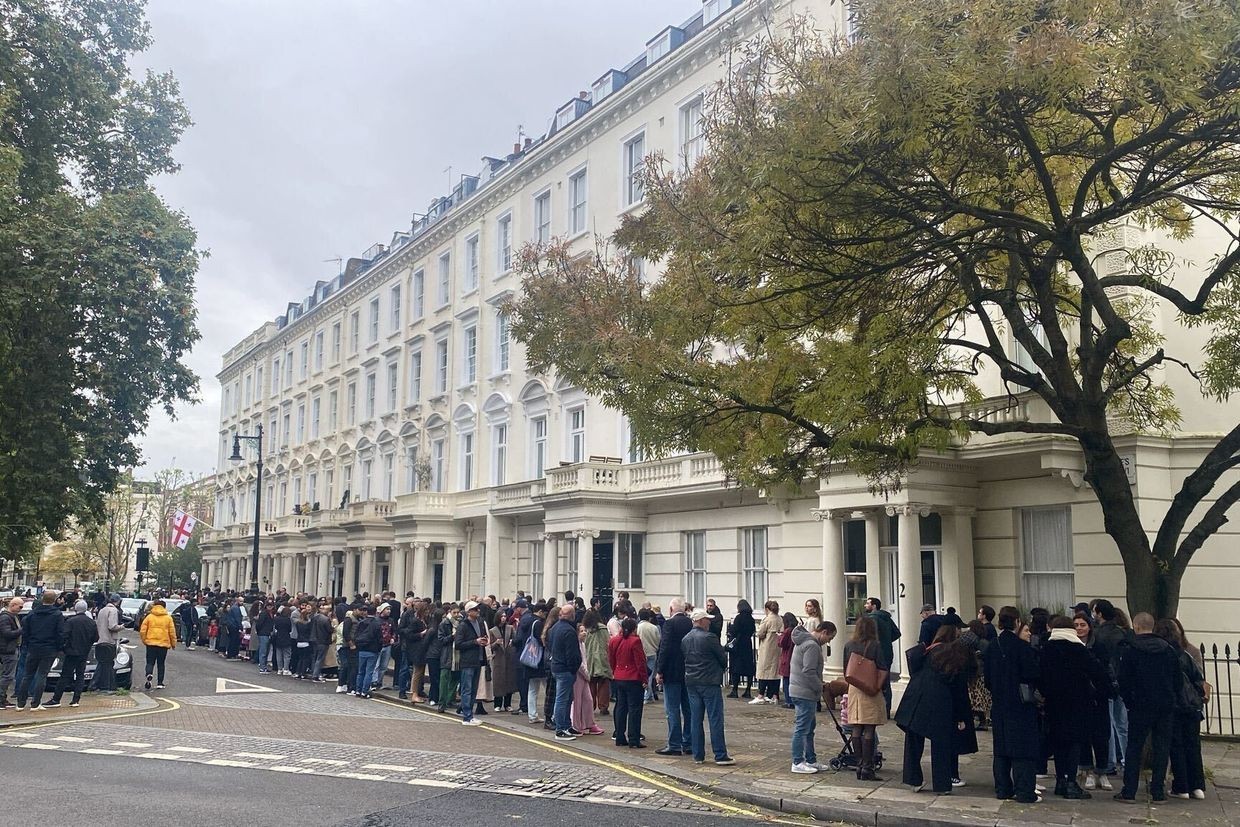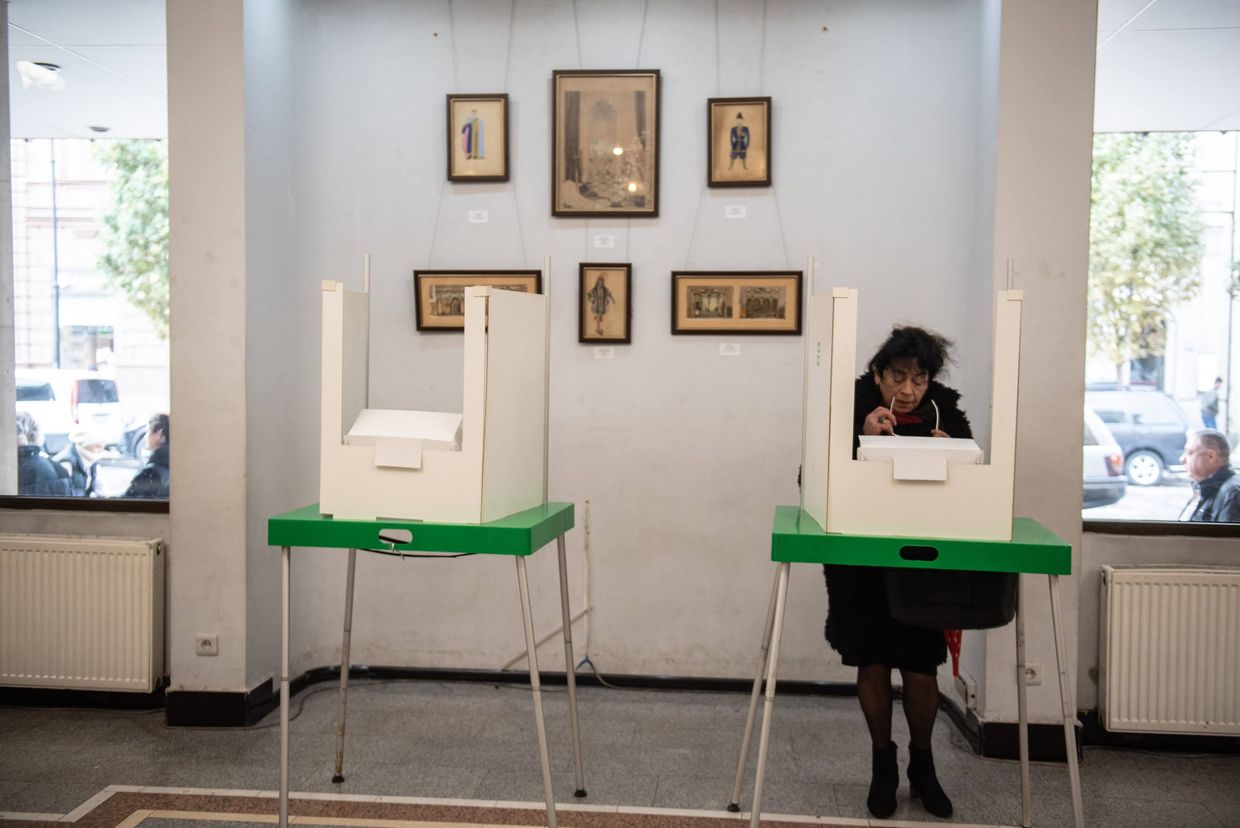
The ruling Georgian Dream party’s decision to revoke the ability to vote in elections from abroad has ignited criticism both domestically and in the Georgian diaspora, with many claiming the move was unconstitutional.
The Georgian government announced plans to prevent Georgians residing abroad from voting in both parliamentary and local elections on Monday.
Making the announcement, Parliamentary Speaker Shalva Papuashvili said exclusively holding votes in Georgia ‘increases the stability of elections, reduces the influence of external players, and ensures a more adequate, informed choice’.
‘To emphasise once again, nothing changes in the voting rights of citizens living abroad. As before, all citizens of Georgia will have the full right and opportunity to vote in the elections. The only condition is to return to their homeland and vote in Georgia once every four years’, he said.
The changes would come as part of amendments to Georgia’s electoral code, expected to be adopted by the end of the year.
Georgian opposition politicians, civil society representatives, and others immediately condemned the move, calling it an attempt by the authorities to limit the voting rights of Georgian emigrants, among whom the ruling Georgian Dream party received only 13.5% of the vote in the disputed 2024 parliamentary elections.
Among those criticising the move was former President Salome Zourabichvili, who on X argued that Georgian Dream was alienating the Georgian diaspora.
#terrorinGeorgia
— Salome Zourabichvili (@Zourabichvili_S) November 17, 2025
« the russian regime » has taken a further step towards isolation: this time separating its population from the Georgian diaspora representing one fourth of the country’s population.
The decision was met with condemnation from other opposition figures, including a leading figure in the opposition Coalition for Change group, Giga Lemonjava, who said that more than a million Georgians had left their country due to the ‘environment of hopelessness and poverty’ created by Georgian Dream’.
‘Why are they canceling the electoral votes for emigrants? Because Georgian Dream cannot control the electoral votes in the diaspora. For example, during the 2024 parliamentary elections, Coalition for Change received more than 11,000 votes, while Georgian Dream received a little more than 4,000. [Georgian Dream founder Bidzina] Ivanishvili is unable to control the votes among emigrants through deception, intimidation, bribery, disinformation, and propaganda’, said Lemonjava.
Strong Georgia — Lelo’s Irakli Kupradze speculated that Georgian Dream was ‘preparing for new parliamentary elections’, noting that ‘over the past 10 years, hundreds of thousands of citizens have left Georgia under Ivanishvili, fleeing political persecution, poverty, corruption, and injustice’.
‘[Ivanishvili] will try to hold new parliamentary elections under the conditions of new propaganda, violent actions, and banning parties. It is important that we think together and determine a common strategy of resistance to Ivanishvili’s violent government’, Kupradze said.
Constitutional lawyer Vakhushti Menabde wrote on Facebook that denying emigrants the right to vote was ‘equivalent to denying them their citizenship’.
‘The political and economic policy of [Georgian Dream] forces our fellow citizens to leave Georgia, now they will cut their last political connection. This step by Georgian Dream will further further take the emigrants away from their homeland’, he said.
The Georgian Young Lawyers’ Association (GYLA) issued its own condemnation of the decision on Tuesday, calling it ‘fundamentally incompatible with the principle of universal suffrage guaranteed by the Constitution of Georgia’.
GYLA stressed that ensuring an emigrant’s right to vote allows them to ‘continue taking part in the political life of their country, even if they are not physically present on its territory’.
‘This issue is particularly important in the case of Georgia, because of the large and constantly growing number of citizens [emigrating]. They provide substantial financial support to families remaining in the country and therefore play a significant role in the economic life of the state’, the organisation said.
Others have also noted that Georgian emigrants generate a sizable income through remittances.
For Georgia’s Giorgi Sharashidze has said that Georgian Dream wanted to ‘restrict the right to vote for everyone who is not under its propaganda and has openly revealed this’.
Sharashidze additionally highlighted the economical contribution brought into Georgia by Georgians living abroad, stating that the volume of remittances had almost reached ₾10 billion ($3.7 billion) in 2024.
‘This amount is equal to 40% of the state budget and almost 30% of the country's total, consolidated budget’, he said.
Independent media outlet Netgazeti has cited the Foreign Ministry as saying that more than 1.5 million Georgians live abroad, who have, transferred $2.7 billion to Georgia throughout 2025, $3.4 billion in 2024, and $4.1 billion in 2023.
In the lead-up to the disputed October 2024 parliamentary elections, Georgians residing abroad continuously demanded the opening of more polling stations abroad.
In its coverage, Netgazeti also noted that after assuming power in 2012, support for Georgian Dream in polling stations abroad has been significantly decreasing, with the ruling party receiving 39.6% of the vote abroad in 2016; 29.03% in 2020; and 13.49% in 2024.






![Baia Margishvili standing in central Tbilisi with a sign reading: ‘The Prosecutor’s Office [is] a punitive squad. How many more innocent people will you put in prison?’ Photo: Mariam Nikuradze/OC Media.](/_next/image/?url=https%3A%2F%2Fassets.bucket.fourthestate.app%2Foc-media-prod%2Fcontent%2Fimages%2F2026%2F02%2Fcalls-for-sanctions-and-raids-19-10-25-48.jpg&w=3840&q=50)




